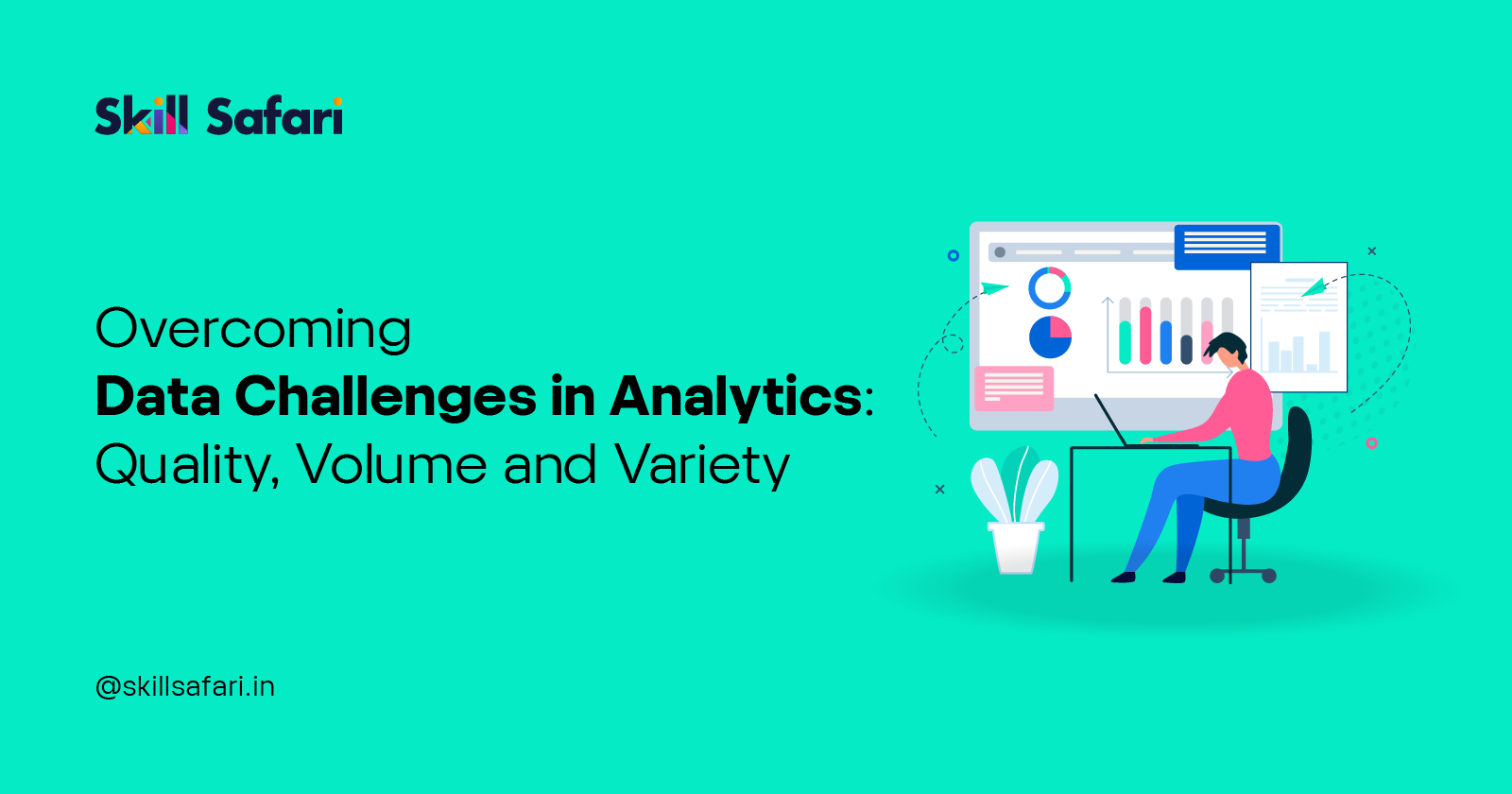Overcoming Data Challenges in Analytics: Quality, Volume and Variety
 Dheepashri Rajavel
Dheepashri Rajavel
In today's digital landscape, data is the currency that fuels business growth and innovation. However, the road to extracting valuable insights from data is often strewn with obstacles. These challenges, encompassing data quality, volume, and variety, can create formidable barriers to effective analytics. This article dives deep into these challenges, shedding light on how organizations can surmount them to harness the true potential of their data.
The foundation of any successful analytics endeavor hinges on the quality of the data being analyzed. Poor data quality can lead to inaccurate conclusions, misguided strategies, and compromised decision-making. To overcome this challenge, organizations must institute rigorous data governance practices. Regular data audits, validation processes, and data cleansing routines ensure that the data flowing through analytical pipelines is accurate, reliable, and trustworthy. With the exponential growth of data generated every day, managing data volume has become a pressing concern. Massive datasets can strain traditional infrastructure, leading to sluggish processing times and resource bottlenecks. To conquer this challenge, organizations are turning to scalable solutions such as cloud computing and distributed processing frameworks. These technologies enable the efficient handling of vast volumes of data, ensuring that analytical processes remain agile and responsive.
The diversity of data types and sources further compounds the complexities of analytics. Structured data from databases must be seamlessly integrated with unstructured data such as text, images, and sensor readings. This challenge calls for adaptable data integration strategies that can harmonize disparate data sources. By doing so, organizations can create a unified data landscape that provides a comprehensive view, enabling more holistic insights.
By overcoming these data challenges, organizations can unlock a multitude of benefits:
Informed Decision-Making: High-quality data provides the foundation for informed, data-driven decisions, reducing the risk of errors and assumptions.
Predictive Capabilities: A strong data infrastructure facilitates predictive analytics, allowing organizations to forecast trends and take proactive measures.
Enhanced Customer Understanding: Dealing effectively with data variety enables organizations to gain deeper insights into customer behavior, leading to more personalized and targeted engagement.
- Innovation and Growth: Conquering data challenges encourages innovative thinking, uncovering new avenues for growth, efficiency, and optimization.
Conclusion:
In the grand tapestry of data analytics, the challenges of quality, volume, and variety may appear daunting. However, by embracing these challenges head-on and implementing robust strategies, organizations can transform these hurdles into stepping stones. In doing so, they pave the way for a future where data is not just a challenge, but a powerful asset that propels them ahead in the competitive business landscape.
Subscribe to my newsletter
Read articles from Dheepashri Rajavel directly inside your inbox. Subscribe to the newsletter, and don't miss out.
Written by
